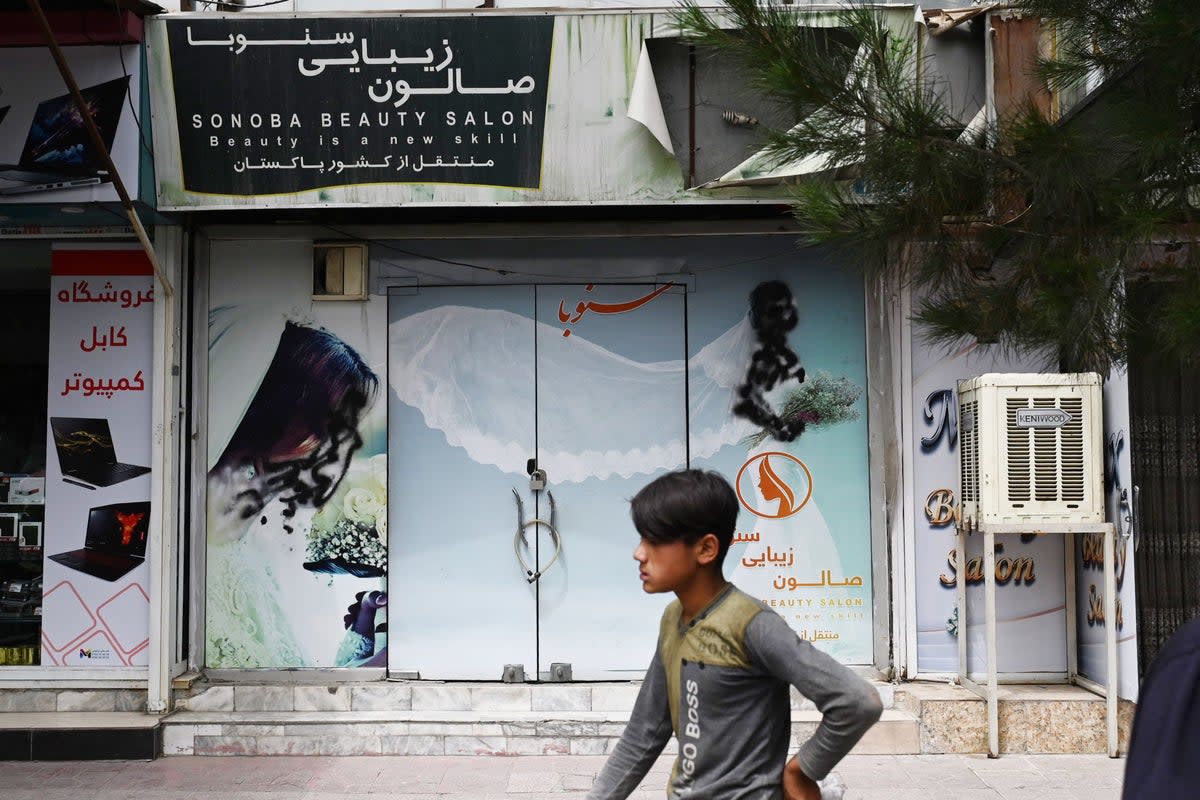UN condemns Taliban closure of beauty salons for women

The United Nations has asked the Taliban to stop implementing its latest diktat of closing beauty salons catering to women in Afghanistan, flagging its impact on the country’s economy and women-led businesses.
In a statement released on Tuesday, the United Nations Assistance Mission in Afghanistan (UNAMA) said it called on the “de facto authorities to halt the edict closing beauty salons”.
“This new restriction on women’s rights will impact negatively on the economy and contradicts stated support for women entrepreneurship. UNAMA remains engaged w/stakeholders seeking reversal of the bans,” the UN mission to aid Afghanistan said.
A spokesperson from the Taliban regime confirmed that parlours and salons for women will be banned in Afghanistan in compliance with a verbal order from the hardline Islamist regime’s supreme leader Hibatullah Akhundzada.
A letter dated 24 June reading the order was shared on social media, which was later confirmed by the spokesperson for the Taliban-run Virtue and Vice Ministry Mohammad Sidik Akif Mahajar. The letter did not cite any reason behind calling for the ban.
The ban will be rolled out in the capital city Kabul and all provinces, serving a deadline of a month to all salons to wrap up their operations.
After 24 July, the salons owners must shut the business and submit a report about their closure to the ministry.
In nearly two years of its rule, the Taliban has seen a widespread crackdown on liberties and human rights of women, starting from the right to education and working for its female population.
Women in Afghanistan are not allowed to work in most forms of employment, teenage girls above the sixth class cannot attend school and young women cannot attend universities and colleges after the Taliban banned their access to the educational institutions last year. They stated that a plan was being worked out but did not specify a timeline or details.
Women in Afghanistan are also banned from public spaces like parks, gyms and public baths, and are even restricted from celebrating Eid in some districts under the Taliban’s caretaker regime.
Last week, in a message ahead of Eid in the Islamic nation, the supreme leader Akhundzada claimed that the Taliban has restored the rights of women “as free and dignified human being” in Afghanistan.
He added that the de facto administration has taken necessary steps for the betterment of women’s lives in Afghanistan and the “negative aspects of the past 20-year occupation” by the US and Nato-led regime related to “women’s hijab and misguidance will end soon”.
